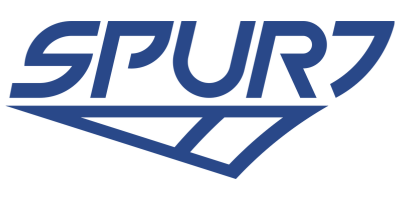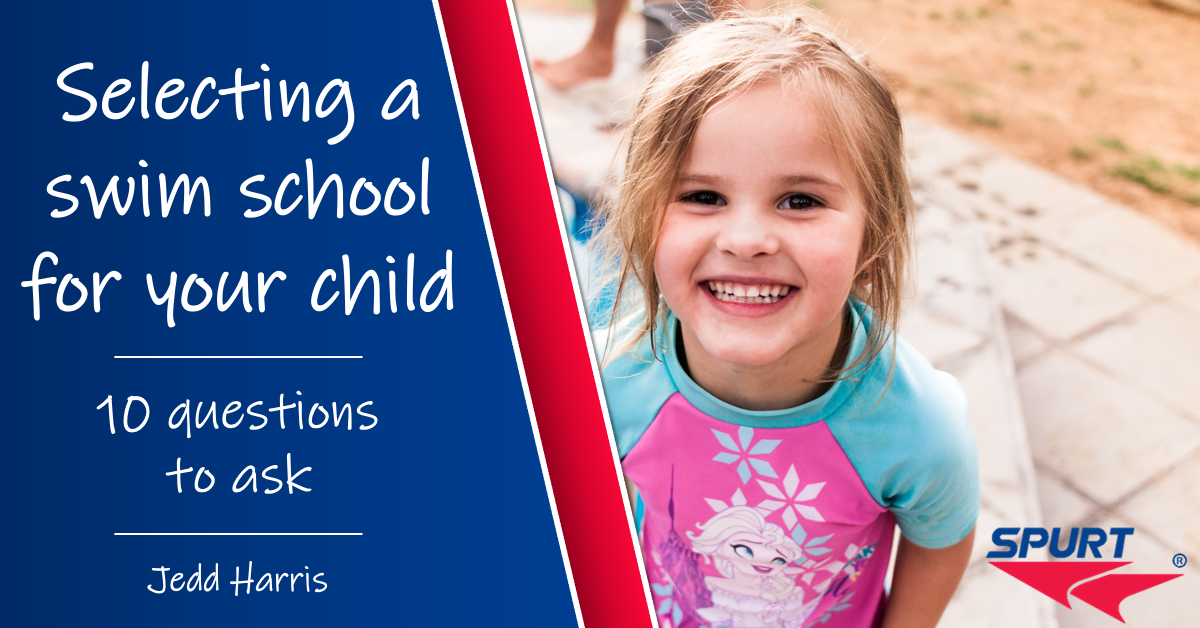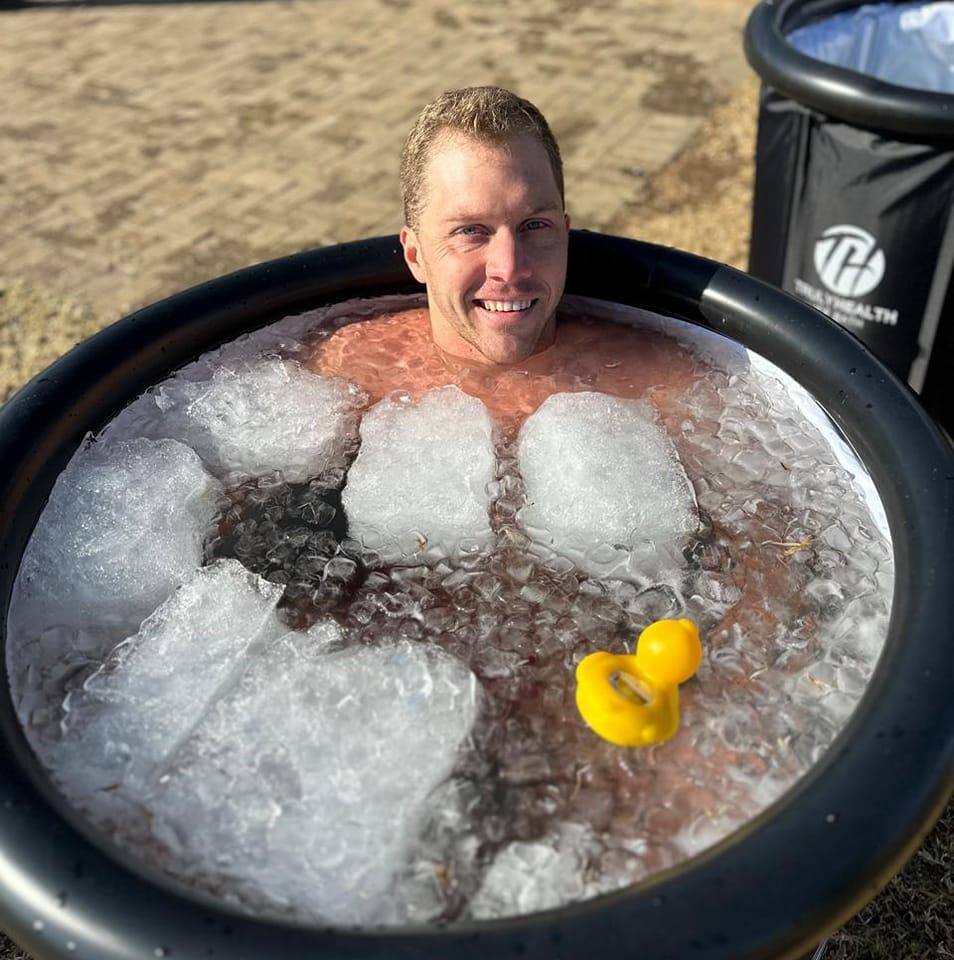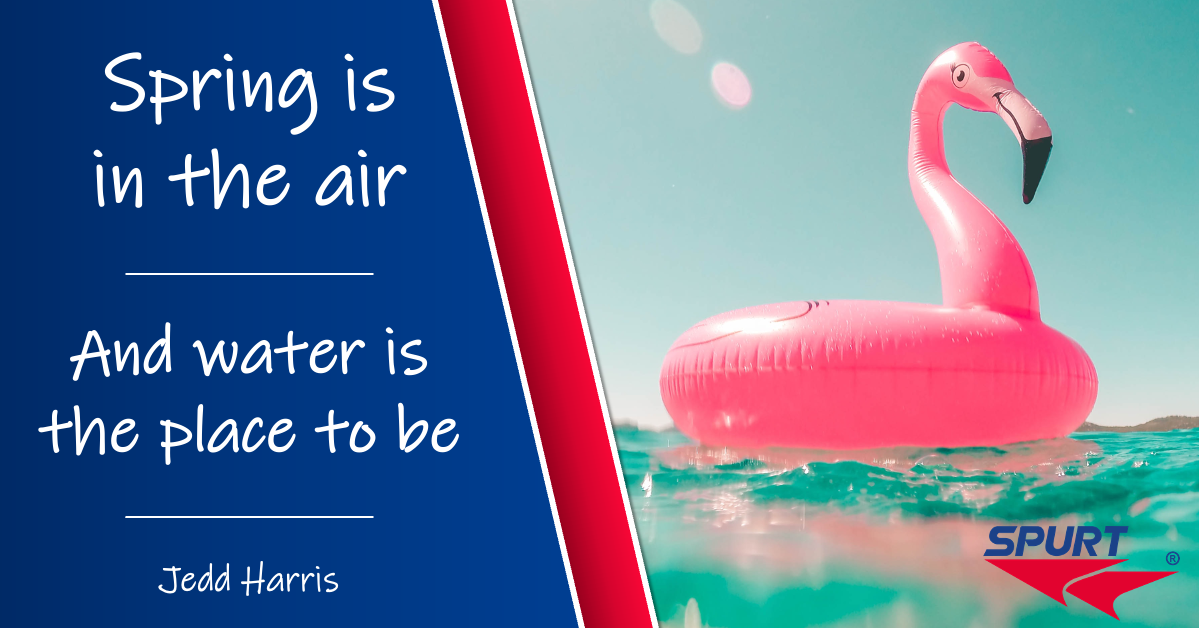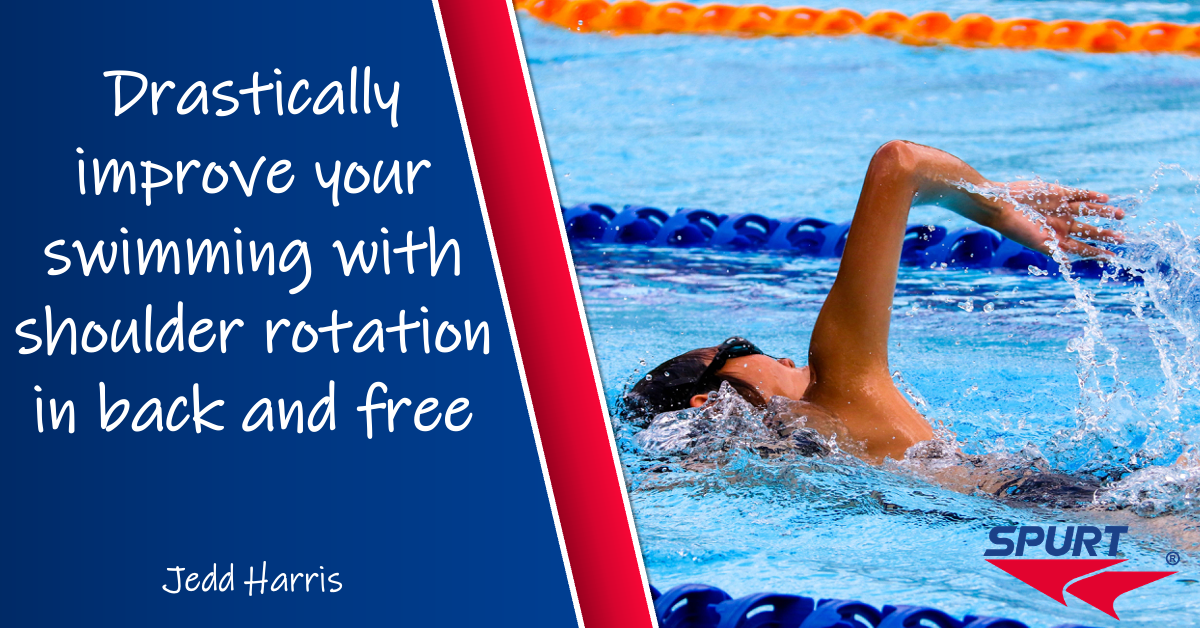This is a decision that isn’t taken seriously enough. Selecting a swim school for your child is a major decision. Firstly, you’re placing the life of your child in the hands of another – an accident in the pool isn’t quite the fall-and-scrape experienced on a tennis court. Secondly, should your child have a hidden, natural talent for swimming, a world-class ability the world has never seen, the world will likely never see it if the proper mentors aren’t in place to nurture that talent from the very start and instil a love of water early on.
You’re in the market for a new swim school for your child.
Either you’re looking for your child to start their structured swimming journey, outside of the bathtub or fun pool walk-arounds or you’re a little unhappy with the current swimming school you’re attending. Whatever the reason, selecting a swim school for your child is a really important decision to make and requires a little bit of research to ensure you choose the right one.
Bonny Harris, owner of Bonny’s Water World, 30-plus year swimming teacher veteran, and 2009 Swim South Africa Learn-to-Swim Instructor of the Year has always been a little surprised at how little research parents undertake when selecting a swim school for their child. She maintains:
It’s strange how much research goes into purchasing a cell phone or laptop – hours and hours of feature and price comparisons – but when it comes to a lifelong investment in water safety, the swim school closest to the house or the cheapest nearest the house will do. Parents and guardians need to understand the importance of selecting the right swim school for their children. This requires gathering as much information about the shortlisted swim schools as possible so that a proper comparison can be made.
But knowing what information is important to gather is difficult when you’re a little disconnected from the swimming world. We get it, you haven’t spent most of your life on pool deck, so it can be a little tricky knowing what to ask prospective swimming schools to identify which is the best one for your child.
Spurt wants only the best for your child’s swimming journey and aims to give you a starting point in this article with ten questions you should ask when selecting a swim school for your child.
1) Is your swimming school registered with its provincial body?
This should be a quick and easy one for the swim school to answer – a yes or no. If the answer is yes, ask which provincial swimming body (e.g. Central Gauteng Aquatics (CGA), Eastern Gauteng Aquatics (EGA), Northern Tigers Swimming (NTS), etc.).
It’s always better for the swim school to be registered, as you know the swim school has the prerequisite qualifications, which have been submitted and approved. Also, there is an opportunity for your child to grow within the same swimming school, from learn-to-swim to beginner competition.
2) What are your swim school instructors’ qualifications and experience?
You can rest assured that swim schools based at large, national gym chains like Virgin Active or Planet Fitness have the prerequisite swimming qualifications with the national swimming body, Swimming South Africa. These organisations are very strict when it comes to their tenants ensuring all of their employees have up-to-date, valid qualifications as these are audited annually.
The documentation they require and, in turn, the documentation you should require when selecting a swim school not based at one of these large gyms is:
- Swimming South Africa Learn-to-Swim or Level 1 Coaching qualification (requires renewal every four years)
- Level 1 First Aid certificate (requires renewal every three years)
- CPR certificate (requires renewal every year)
- Police clearance certificate (requires renewal every year)
In terms of experience, not everyone has 30+ years of teaching experience or an SSA LTS Instructor of the Year Award like Bonny Harris. Some may be new swimming instructors starting their teaching journey. But even these instructors have a backstory, and it’s important to ask what it is.
3) What are your swim school’s ability groupings?
Here, you are enquiring about the swim school’s structuring of its lessons. At a high level, swim schools typically offer the following ability grouping for children:
- Learn-to-Swim
- Beginner stroke
- Intermediate stroke
- Advanced stroke
- Beginner squad
- Junior squad
- Senior squad
However, not all swimming schools offer all of these groupings. It all depends on the size of the swimming school and the number of instructors in its employment. Some even choose to specialise in one area and feed swimmers who progress well onto other swim schools specialising in another area.
The important part here isn’t whether the swim school offers a range of ability groupings, but rather that there is some kind of structure used to group swimmers showing a basic understanding of swimmer progressions. It is also important that the swim school offers the ability grouping required by your child.
The starting point with any swim school should be an assessment to determine which ability grouping will best suit your child.
4) How does your swim school track swimmer progress?
This is different at different swim schools – some may offer progress reports, some may track progress on a lesson-by-lesson basis, some may leave this to the discretion of its instructors, who will notify the swimming school manager/owner when the swimmer is ready to advance to the next ability grouping.
Again, this question intends to determine whether the swim school has an understanding of swimmer progression and how this understanding translates into your child’s progression within the school. Although you want your child to enjoy his or her swimming lessons, you also want him or her to be challenged along the way, earning promotions to more advanced groups.
5) How many swimmers are in each class (swimmer-to-instructor ratio)?
This is such an important question to ask and you should expect the following answers.
- Learn-to-Swim: 3-4 swimmers per instructor maximum
- Beginner stroke: 4-6 swimmers per instructor maximum
- Intermediate stroke: 4-6 swimmers per instructor maximum
- Advanced stroke: 6-8 swimmers per instructor maximum
- Beginner squad: 8-10 swimmers per instructor maximum
- Junior squad: More than 10 swimmers
- Senior squad: More than 10 swimmers
Remember, smaller groupings are more beneficial at an earlier stage of development to ensure attentiveness to detail and avoidance of bad habits, but bigger groupings become more beneficial at the later stages of development, to introduce the benefit of healthy competition.
6) How does your swim school encourage long-term athlete development?
Swimming South Africa is very passionate about the concept of long-term athlete development. This is the process in which a swimmer is nurtured and provided with foundational skills in a certain area so that a wealth of opportunities open up in the future.
From a swimming perspective, a swimmer who has not only learned to love the water from an early age but who has been provided with a sound foundation of swimming fundamentals can become a phenomenal swimmer, water polo player, diver, synchronised swimmer, underwater hockey player, scuba diver, etc. Most importantly he or she will always love the swimming experience.
The foundational skills taught in Learn-to-Swim, as well as how it is taught, should be the start of your child’s lifelong journey in the water. Swimming does not start as a sport, but rather a lifeskill that evolves into a love for a lifetime.
The prospective swimming school should be very aware of the concept of long-term athlete development as Swimming South Africa regularly run workshops on the topic. It is also a very important component of the Learn-to-Swim course content.
7) What are your fees (per lesson or per month) and what do I get?
This will vary across swimming schools and will depend on several factors, such as:
- Area (particularly dependent on the number of swim schools and demand for swimming lessons)
- Instructor qualifications and expertise
- Swimming facilities (gym or private)
- Length of lessons and number of lessons per month
- Number of swimmers in a class
There is no right or wrong answer here, but will form a useful comparison across swimming schools, particularly if your budget is an important consideration. Remember, though, this shouldn’t be the most important consideration.
8) How long are your lessons?
Lesson duration varies across the developmental / ability groupings. Short enough to make sure the swimmer is attentive throughout, long enough to ensure enough skills are covered and the swimmer is adequately challenged. You should expect the following lesson durations, dependent on the ability grouping:
- Learn-to-Swim: 20 – 30 minutes
- Beginner stroke: 30 – 45 minutes
- Intermediate stroke: 45 – 60 minutes
- Advanced stroke: 60 minutes
- Beginner squad: 60 – 75 minutes
- Junior squad: 75 – 90 minutes
- Senior squad: 90 – 120 minutes
9) Do you offer swimming all year round?
Swimming is not only a summer sport. Preseason and short course seasons are hosted during the winter months, where a lot of the technical work is done at a later stage of development (turns, underwaters, drills, speed work, etc.).
Again, there is no right answer here. You and your child decide on whether you would like to swim during the winter. Personally, this is highly recommended, so that your child’s progression is accelerated and not hampered by the break away from the pool.
10) Can I attend lessons to watch my child?
Such a great question to finish off with.
You should know that during Child Protection workshops offered by Swimming South Africa, instructors and swim schools are encouraged to allow the attendance of parents at swimming lessons. This is to promote transparency and a sense of comfort to the parent that lessons are run professionally.
Parent attendance is totally fine during the earlier stages of development (pre-squad), but coaches tend to limit parent attendance once swimmers are older and more mature, swimming in a squad. The swimmer-coach relationship becomes more important on pool deck during this phase, and the coach must feel he or she has the room to develop it without the watchful eye or interference from the swimmer’s parent. That said, the occasional attendance of parents, even at squad level should be permitted and not strictly disallowed.
WARNING: Although you have the right to attend your child’s swimming lesson, you also have the responsibility to respect the instructor or coach. DO NOT interfere with the swimming lesson/session and risk disrupting the energy and your child’s and the other swimmers’ performance. This is important to note early on and may help you avoid uncomfortable interactions with senior coaches later on in your child’s swimming career.
Now you are totally equipped to make the most informed decision and select a swim school for your child…
All that’s left is to gear up for your first lesson – Spurt can help you there.
